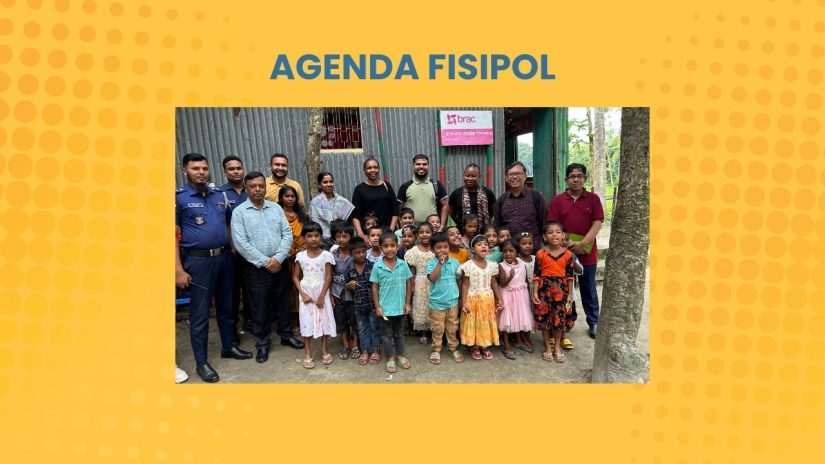
Dr. Nurhadi, lecturer at the Department of Social Development and Welfare (PSDK), Faculty of Social and Political Sciences, Universitas Gadjah Mada (FISIPOL UGM), participated in a visiting scholar program at BRAC University, Dhaka, Bangladesh, from August 6–15, 2025. The program aims to strengthen international academic collaboration, particularly in poverty alleviation studies through the Graduation Approach.
BRAC University was chosen due to its close connection with BRAC International, the institution that pioneered the Graduation Approach in the early 2000s. Today, this method has become a global reference in poverty reduction strategies, including in Indonesia.
During the program, Dr. Nurhadi collaborated with Prof. Syed M. Hashemi, a pioneer of the Graduation Approach. Activities included academic interviews, field visits, and preparation for joint research and publications. Prof. Hashemi explained the development of the Graduation Approach, which integrates five core elements: targeting, consumption support, savings, asset transfer, and skills training & coaching.
A field visit was conducted in Manikganj District, around 50 km from Dhaka, to observe BRAC’s programs, including rural education services, free healthcare, microfinance initiatives, and women’s empowerment through the Ayesha Abed Foundation.
Additionally, Dr. Nurhadi prepared a joint publication draft comparing poverty alleviation policies in South Asia and Southeast Asia. This work discusses the paradigm shift from protective social protection to productive social protection.
Looking ahead, Dr. Nurhadi and BRAC University will collaborate on a short-term research project through the Asia Knowledge Initiative (AKI) 2025–2026, aimed at advancing decolonizing knowledge and strengthening pan-Asian perspectives in cross-country research.
Relevant SDGs (Integrated in the Narrative)
This program and research collaboration directly supports several Sustainable Development Goals (SDGs):
-
SDG 1 – No Poverty: by developing innovative poverty alleviation strategies through the Graduation Approach.
-
SDG 4 – Quality Education: through rural education programs and academic collaborations that expand knowledge sharing.
-
SDG 5 – Gender Equality: by highlighting women’s empowerment initiatives, such as those led by the Ayesha Abed Foundation.
-
SDG 8 – Decent Work and Economic Growth: by promoting microfinance, skills training, and productive social protection measures.
-
SDG 10 – Reduced Inequalities: by strengthening inclusive approaches to social and economic development for marginalized communities.
-
SDG 17 – Partnerships for the Goals: by fostering international collaboration between UGM, BRAC University, and regional partners under AKI.
